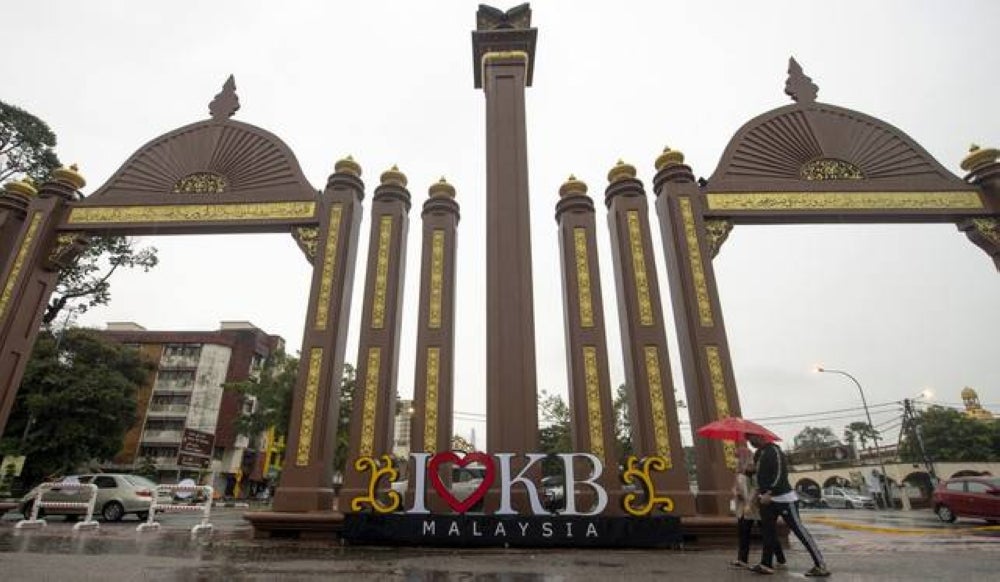Addressing Kelantan’s long-standing critical issues
RAIS HUSSIN and FARAH NATASYA
Mark your calendars, Kelantan! Aug 12, 2023, is a crucial day as the state gears up for the upcoming election. Kelantan has been facing a series of long-standing issues such as clean water access, water scarcity, and unemployment, all of which require immediate attention and thoughtful solutions. Failure to solve these critical issues could have far-reaching consequences for Kelantan's future.
Kelantan’s 1.8 per cent contribution to the national Gross Domestic Product (GDP) in 2022 and the median monthly household income of RM3,614, as reported in the Household Income Survey Report Kelantan 2022, underscores the importance to address issues that hinder the state’s economic growth and development. Limited financial resources may impede investment in critical water infrastructure and job creation. As a result, long-standing challenges persist, affecting the lives of Kelantan's people.
As the election approaches, Kelantan's political landscape is once again in the spotlight, presenting a golden opportunity to address these pressing issues and shape the trajectory of the state's future. By electing leaders committed to effective governance, Kelantan can pave the way for sustainable development and progress, safeguarding the well-being of its people for future generations.
In the forthcoming 2023 state election, the contesting parties have set their sights to secure a total of 45 Kelantan’s state legislative assembly (DUN) seats. Barisan Nasional (BN), is vying for victory in 31 seats, while Pakatan Harapan (PH), is focusing on 14 seats. Meanwhile, Perikatan Nasional (PN), will be fielding 39 Pas candidates and 6 Bersatu candidates.
For over three decades, Pas has held the reins of power in Kelantan, solidifying its position as the ruling government. Looking back at the previous three general elections, Pas has demonstrated a consistent increase in support.
In the previous general elections, Pas achieved a significant triumph by obtaining 31 out of 45 DUN seats in GE13 and 37 seats in the momentous GE14, putting an end to Umno's 60-year reign of power. This allowed Pas to maintain control of the state since reclaiming it from the United Malays National Organisation (Umno) back in 1990. Furthermore, in the recent GE15, Pas achieved a clean sweep of 14 parliamentary seats in Kelantan, indicating the party's continued popularity among the electorate.
In contrast, BN's performance in the state has declined over the years. During GE13, BN won only 12 DUN seats, and, in GE14, it only managed to secure 8 seats. This downward trend for BN reflects a political landscape shift in Kelantan.
Yet, this begs the question of the ruling party's effectiveness in addressing critical issues while the state grapples with pressing challenges and economic difficulties for decades.
Kelantan’s caretaker Datuk Ahmad Yakob on Aug 1, 2023, announced an achievement rate of 98% for their manifesto "Achievements of the Kelantan State Government's Manifesto”. However, this seemingly impressive percentage fails to accurately depict the true reality, presenting a potentially misleading image as the critical issue is still evident now.
The success of a manifesto should be evaluated based on its effectiveness in addressing the needs and challenges faced by the people. Moreover, aside from prominent issues, what actions has the government taken to advance the state, considering that a significant majority of the population falls in the B40 category and the Household Income Survey Report Kelantan 2022 has reported a poverty rate of 13.2 per cent?
With the critical importance of addressing Kelantan's pressing issues being evident, let's now delve into the persistent challenges the state faces.
Water scarcity and clean water
Former Environment and Water Minister Tuan Ibrahim Tuan Man noted only 71.7 per cent of the 1.7 million Kelantan residents have access to clean water (“Only 71 per cent of Kelantan folk have access to clean water, says minister”, Free Malaysia Today, Oct 12, 2021).
As of 2022, nationwide access to the water supply is at 97.07 per cent in urban areas and 97.03 per cent in rural areas, as noted by the Natural Resources, Environment, and Climate Change Minister Nik Nazmi Nik Ahmad. Compared to this, the situation in Kelantan is particularly concerning—the gap between the state’s clean water access and the national average is simply glaring!
Despite claims of significant progress—75 per cent of achievements in improving basic necessities (including improving clean water supply) in the "Achievements of the Kelantan State Government's Manifesto"—recent water issue during the Aidilfitri festival has affected many in Kota Bharu, Bachok, Tumpat, and Pasir Mas. This suggests that there are still significant problems with the water supply in the state.
Moreover, according to Mohd Noor Fazley, the community depends on rainwater and travels up to 4 kilometers for water from the river as the clean water supply from Air Kelantan Sdn. Bhd. (AKSB) run out two years ago (“Kelantan settlement residents suffer 2 years of murky water supply”, New Straits Times, February 3, 2023).
Furthermore, the cost of addressing the water issue, in the long run, has risen to RM8 billion. The staggering increase from RM2 billion points to potential management and implementation difficulties, implying that the state’s water woes are aggravating in their severity. This serves as a wake-up call for policymakers and decision-makers to diligently focus on creating a more resilient and sustainable water supply system, as this prolonged issue will significantly impact people’s well-being.
The reason for the long-standing water woes in Kelantan appears to be complex, with potential management and integrity issues at play, alongside financial constraints.
Kelantan's Deputy Menteri Besar (MB) Datuk Mohd Amar stated that the lack of finances is the primary hindrance to resolving the water issue. However, recent allegations of RM10,000 bonus payments to the AKSB’s directors raise a critical question of whether the crux of the problem lies in management and integrity issues or is it genuinely due to financial constraints.
Therefore, given the ongoing water woes, it is imperative to conduct a comprehensive reevaluation of AKSB’s management practices, long-term planning, and infrastructure investment in order to investigate the claims of inefficiencies related to resource allocation, operational transparency, and maintenance procedures. The evaluation should specifically focus on water storage capacity planning, contingency plans for unprecedented demand surges, and the incorporation of climate resilience concerns into water management strategies.
Also, AKSB must implement strategic measures to improve water supply management, drawing on the successful practices of Perbadanan Bekalan Air Pulau Pinang Sdn. Bhd. (PBAPP).
Additionally, AKSB must implement a water monitoring system to autonomously monitor, assess and report water issues in the state to prepare themselves for any water stress, especially with El Nino expected to arrive at the end of this year.
Employment opportunities
Kelantan folks are calling for the state government to prioritize the creation of more employment opportunities as unemployment remains a critical problem, faced by Kelantanese, contributing to the high rate of out-migration among the people, especially youth, due to the lack of diverse employment opportunities in one of Malaysia’s poorest states.
In 2020, the Population and Housing Census of Malaysia 2020 (MyCensus 2020), found that Kelantan’s constituencies with the highest rate of unemployment are Kemuning (4.2 per cent) which is slightly lower than the national unemployment all-time high in 2020 at 4.5 per cent, Kok Lanas (3.9 per cent), and Tanjong Mas (3.8 per cent). Meanwhile, as of February 2023, Kelantan's unemployment rate stands at 4.1 per cent, slightly higher than the national rate of 3.5 per cent reported in the Labour Force Survey Report, First Quarter 2023 (DOSM).
The marginal difference is possibly due to the skills mismatch between the workforce and local market demands which can be a significant driver of out-migration and higher unemployment rates in a particular area. It is crucial to explore how these factors interplay and drive the significant out-migration observed in the state.
The high rate of out-migration is mainly due to the lack of adequate occupations that match credentials, and income levels commensurate with the rising cost of living. We can expect more out-migration to happen in Kelantan if the unemployment issue is not being curbed immediately by the government.
Evidently, shocking data revealed that 250,000 youths, or roughly 15 per cent of 1.8 million Kelantan’s population in 2019, out-migrated in search of employment and other opportunities in more economically developed places like Selangor (see “What makes the people of the poorest state, Kelantan, so happy”, July 25, 2022).
Furthermore, this trend of out-migration is not a mere arbitrary movement. Contrary to oversimplify claims by Deputy MB Datuk Mohd Amar that Kelantan people are fond of wandering despite an abundance of jobs in the state, rather, it is a response to the lack of diverse and suitable job opportunities within the state.
A case study in Kota Bharu, Kelantan, found that the main factor for migration is job opportunities, where the only career opportunity available in the region is retail marketing, but owing to low wages, youth are uninterested in working there (see “Urbanisation, Migration and Demise of Malay Settlement”, 2021).
It is essential to recognise that multiple factors play a role in the decision to migrate. As emphasised in EMIR Research’s article (“Malaysian brain drain – don’t go chasing waterfalls”, May 24, 2022), better career prospects and perks, and higher quality of life are among the pulling factors that attract migration.
Hence, given the unemployment rate and high rate of out-migration, what are the state government’s plans to address the issue of lack of employment opportunities in Kelantan while boosting the state’s economy?
The Kelantan state government should prioritise the development of credible and dignified employment opportunities that offer fair wages, good working conditions, and opportunities for career advancement. One way to achieve this is by diversifying sectors, including incredibly lucrative modern agritech, as the agriculture industry is a key sector in Kelantan.
They must empower the youth to involve in the agritech business, making them agro-techpreneurs to revitalise agriculture and drive economic progress in the state.
Moreover, as a state that is well-known for its food, Kelantan’s government must coordinate a platform to bridge agro-entrepreneurs and food tourism operators by fostering collaborations and partnerships between agro-entrepreneurs and tourism stakeholders. With this, Kelantan can further diversify its economy to attract investors and foster additional employment opportunities.
Ultimately, Kelantan, let us seize this opportunity and make our voices heard through the power of our vote. As we enter a new chapter, let us envision a Kelantan with progress, hope, and unity.
The decisions we make in this election will determine our collective future, determining the path to wealth and a higher quality of life for all or a future deterioration if the leaders are elected based on their divisive racial-religious rhetoric skills rather than based on true stewardship knowledge, skills, and abilities.
Dr Rais Hussin and Farah Natasya are part of the research team at EMIR Research, an independent think tank focused on strategic policy recommendations based on rigorous research.
The views expressed in this article are the author's own and do not necessarily reflect those of Sinar Daily.
Download Sinar Daily application.Click Here!














